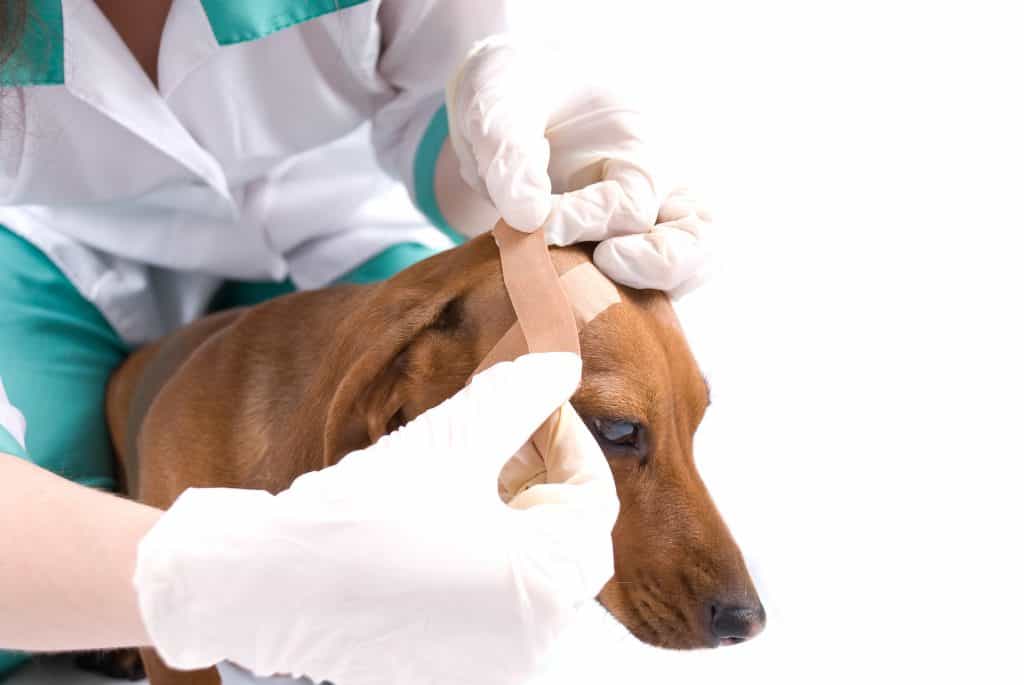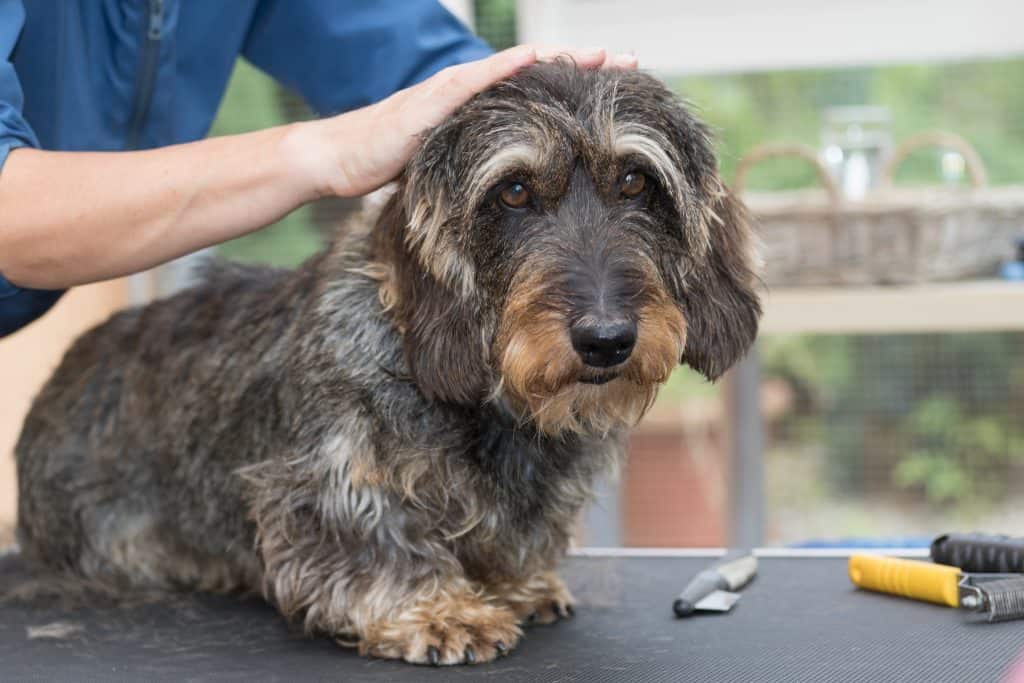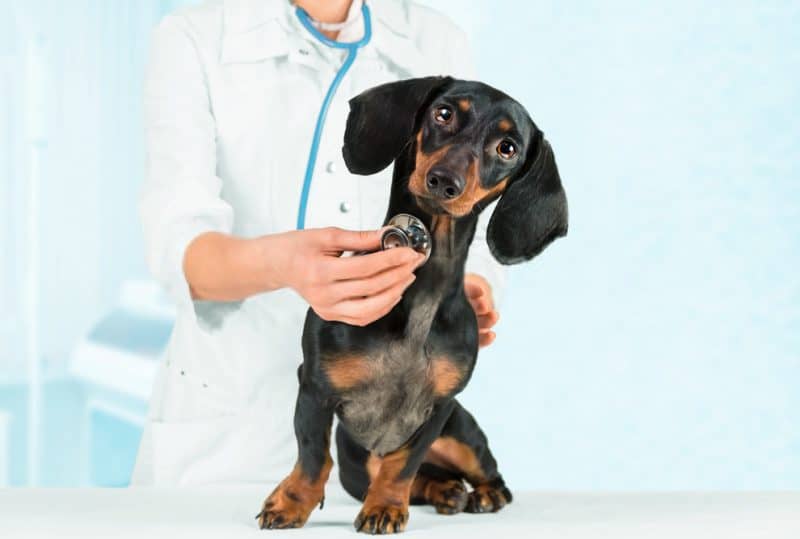
Understanding Dachshund Allergies
Allergic reactions are a horrible downside of having a functional immune system. There are lots of triggers in the world that can cause us harm and our bodies do what they can to fight against them. While we as humans are a little more resigned to the fact that we will have to live with these allergies, it can be a lot more distressing for our dogs. They can’t tell us when they are reacting, what they are reacting to, or how they feel. They can’t walk to the pharmacy for a quick over-the-counter solution. Instead, they rely on us to spot the telltale signs and work to reduce their exposure to those harmful substances.
Dachshund allergies are a big problem that we have to deal with as dachshund owners. These dogs are often susceptible to reactions to a range of potential irritants and the symptoms can be upsetting. That is why it is so important to understand the risks of allergies in dachshunds and how to help them. Below, you will learn more about the symptoms to look out for, the different risks, such as Dachshund food allergies, and some of the methods of treatment and prevention.
Related post: Are dachshunds prone to allergies?
Signs that your Dachshund is suffering from allergies.
Your pet may exhibit signs of an allergic reaction in different ways. A common problem is a change in the condition of their skin. It might become dry and flaky, which can be very itchy and irritating for the dog. If unchecked, their licking and scratching could cause sores and cuts that may become infected. These cases of seborrhea may also have the opposite effect with excessive oil production. Either way, you need to keep an eye on their skin to pick up on problems before they get worse.
Related post: How to Deal with Skin Problems in Dachshunds
Some dogs will also show symptoms in their eyes. The tissues around their eyelids can become inflamed and inhibit the production of tears. This, in turn, leads to dry eye. If untreated, you might start seeing problems with the eye itself, such as scarring or cloudiness, or greater production of mucus.
Keep an eye on your dog’s behavior.
Unless you make a point of checking your skin and coat thoroughly every single day, you might miss some of the early warning signs of skin complaints and allergic reactions. However, your dog will probably start acting a little odd as they try and relieve itself of the discomfort of the allergic reaction. If you can pick up on these signs, you might have a better chance of spotting the issue before it gets worse.
Signs to look out for here include:
~ Scratching at a specific area quite frequently or violently
~ Licking at patches of their skin or fur
~ Chewing on their paws
If you notice any of these symptoms in your dachshund, the next step is to figure out the root cause. Once you have a better idea of the problem you can then work on eliminating the allergens and relieving the condition.

What causes allergies in Dachshunds?
Unfortunately, there could be several culprits here. If you aren’t sure what the answer is at first you may end up in a process of trial and error trying to find the solution. Consider the following:
Food allergies
Many dogs will have some form of intolerance to ingredients in their food but some factors are more common in Dachshunds. The first is corn. Dachshunds can have trouble digesting it and this can lead to symptoms of an allergic reaction. In some cases, these Dachshund food allergies could be due to the chicken in their food.
Related post: Dachshund Food Allergies: What You Need to Know
Flea bites and other reactions to insects
Fleas are a pest no matter what breed of dog you have. But, dachshunds are susceptible to flea allergy dermatitis. As with other skin complaints, this can become very painful and annoying for the dog and will only get worse without treatment. Also, be aware that mites and stinging insects will also pose their own risk.
Reactions to grass and pollen
Your Dachshund isn’t going to start sneezing like we do when confronted with high pollen counts. Hayfever isn’t the issue here. Instead, they can end up with some of the same skin complaints seen with other allergens. Unfortunately, it can be difficult to figure out the cause as you might not be aware of which plant or tree is responsible.
Related post: Dachshund Skin Allergies: Causes, Symptoms, and Treatment
Chemicals in grooming products
Another potential issue here could be the products you use when grooming your pet. Like us, some dogs are more sensitive to the ingredients in their shampoos and the detergents used on their blankets and toys. Their bath might not be as soothing as you hoped.
Related post: Understanding and Treating Hair Loss and Bald Spots in Dachshunds

Treating Dachshund allergies.
There are two ways to help while learning how to care for an allergic dog.
1) Reduce exposure to the allergen to minimize any attacks.
2) Treat the symptoms to make your dog feel better
Reduce exposure to the allergen to minimize any attacks.
Reducing exposure shouldn’t be too difficult once you have determined the cause. If you think that the problem might be food-related, change their diet to remove one of the possible substances that could be a problem. Start by eliminating corn from their diet. If you can see a clear improvement in their health after the switch then you might be on the right track. If not, try switching out the flavor of the meat. Removing one thing at a time may be slower but it helps pinpoint the problem for future reference. If you eliminated every possible allergen at once, you wouldn’t be sure which they need to avoid in the future.
Reducing the risk of insect and flea bites is possible with the right treatments. There are lots of flea treatments out there with different solutions for different breeds. You can set up a program with a topical treatment, a shampoo, or a flea collar. Find what is most comfortable and effective.
Reducing the risk of pollen is a little more difficult if you have no idea what plant or tree is the trigger. You can’t stop your dog from going outside during the summer or from playing in the long grass. If there is a report of a high pollen count on the weather report then maybe you can adapt your walking route for the day.
As for the chemicals in your products, it is easy to make a switch to something safer for your animal. There are lots of natural bath products for dogs that will have chemical-free formulas. You can make sure there are no nasty fragrances, preservatives, or other unnecessary agents that might irritate their skin. Also, be careful what you use to clean their food and water bowls and the detergent when washing any blankets or fabric toys.
Click Here To Read About The Benefits of Hemp Oil for Dachshunds
Treating the symptoms of allergies in Dachshunds.
Medicated shampoos aren’t just for insect bites. You can switch to a medicated shampoo during bath time to help soothe the skin and improve the condition of the coat. The natural oils and calming ingredients can reduce swelling and itching, such as chamomile or oatmeal. Even the act of massaging the skin during a bath can help with blood flow and oil production to improve the health of the skin and coat. Alternatively, you might want to add a few supplements to your dog’s food to ensure that they have all the right vitamins, minerals, and oils needed to fight the reaction and improve the quality of the skin.
Related post: What can I feed my Dachshund with food allergies?
When should you consult a vet about allergies in Dachshunds?
Sometimes Dachshund allergies can get quite severe and you either feel that the symptoms are painful and distressing or that you simply can’t find the root cause. If you are struggling with this issue and need professional advice, talk to your vet. The best-case scenario is that they will diagnose a problem with ease and offer a safe treatment or maybe some antihistamines to fight off the allergens. The worst case is that they will be unsure of the reason on their first inspection and decide to run some tests. While this might be stressful at first, the results could lead to a more sure-fire solution and less stress long-term.
In short, the best thing that you can do if you have a Dachshund is to be vigilant about these allergy risks. If they try a new diet or run through the long grass in summer, keep an eye on them for symptoms. Check their skin and eyes while grooming them but also watch out for scratching, licking, and chewing. If there is a reaction, take your time to narrow down the issue and take the appropriate action. This means treating the allergic reaction but also preventing any further reactions as best you can. Finally, if you struggle with this issue you can always turn to your vet for advice.
If you want to find the best pet insurance for your dachshund click here
Related post: Why does my Dachshund have dandruff?
Conclusion
Understanding dachshund allergies is essential for every caring pet owner. By being aware of the different types of allergies, their symptoms, and effective management strategies, you can ensure your dachshund leads a healthy and comfortable life. Remember to work closely with your veterinarian, as they are the best resource for personalized advice and treatment options for your furry companion.




